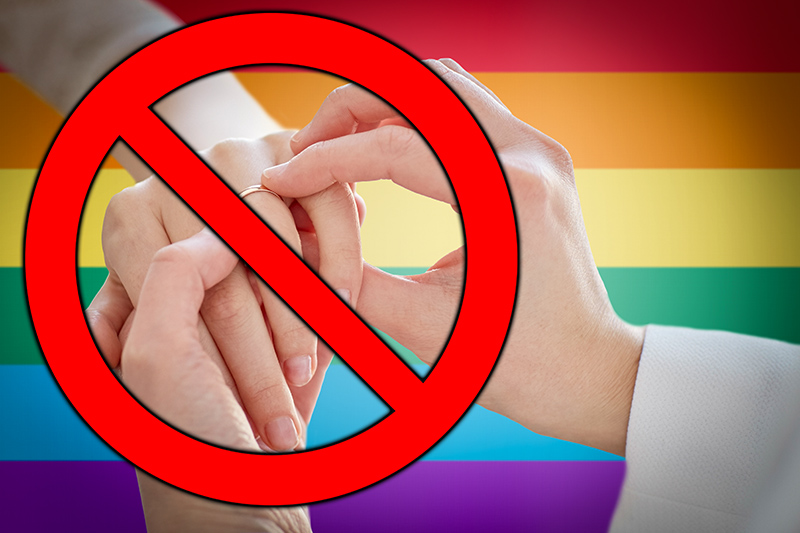16 states urge Supreme Court to rule employees can be fired for being LGBTQ
Amicus brief asks high court to overturn 6th Circuit decision finding that a funeral home discriminated against trans employee

Sixteen states are urging the U.S. Supreme Court to rule that federal law does not prevent companies from firing LGBTQ workers, reports Bloomberg Law.
The brief, filed Aug. 23, was written in response to a decision by the 6th U.S. Circuit Court of Appeals finding that a Michigan funeral home unlawfully discriminated against a transgender employee when it fired her for following through with her gender transition.
The funeral home has since appealed to the U.S. Supreme Court, arguing that the owner of the funeral home should not be forced to violate his personal religious beliefs objecting to transgenderism.
The 16 states, led by Nebraska Attorney General David Bydalek, ask the Supreme Court to reverse the 6th Circuit’s decision, while also ruling that Congress never intended for the ban on sex discrimination in Title VII of the Civil Rights Act to be applied to instances where LGBTQ people are discriminated against based on sexual orientation or gender identity.
“The States’ purpose is to note that ‘sex’ under the plain terms of Title VII does not mean anything other than biological status,” Bydalek wrote. “The role of the courts is to interpret the law, not to rewrite the law by adding a new, unintended meaning.”
The brief also asks the court to rule on whether a previous decision the high court issued on sex discrimination prohibits employers from applying sex-specific policies according to a person’s biological sex rather than their gender identity.
In the case in question, Thomas Rost, the owner of R.G. and G.R. Harris Funeral Homes, alleges that his company was justified in requiring employee Aimee Stephens to dress in accordance with male grooming standards based on her biological sex at birth, and in firing her when she failed to comply.
Attorneys general and governors from Alabama, Arkansas, Kansas, Kentucky, Louisiana, Maine, Mississippi, Oklahoma, South Carolina, South Dakota, Tennessee, Texas, Utah, West Virginia, and Wyoming also signed onto the amicus brief. Their view of Title VII — that it only applies to a person’s biological sex — comports with the view held by the Trump administration.
Meanwhile, the U.S. Equal Employment Opportunity Commission — which originally sued on Stephens’ behalf — says LGBTQ bias is inherently a form of sex-based discrimination.
The court will either decide to take up the case or to allow the 6th Circuit’s decision to stand. The court could also decide to take up one of several other cases dealing with whether Title VII prohibits discrimination based on sexual orientation. Both the 2nd and 7th Circuits have determined that it does, while the 11th Circuit has dismissed at least two lawsuits alleging violations of LGBTQ people’s Title VII rights.
Support Metro Weekly’s Journalism
These are challenging times for news organizations. And yet it’s crucial we stay active and provide vital resources and information to both our local readers and the world. So won’t you please take a moment and consider supporting Metro Weekly with a membership? For as little as $5 a month, you can help ensure Metro Weekly magazine and MetroWeekly.com remain free, viable resources as we provide the best, most diverse, culturally-resonant LGBTQ coverage in both the D.C. region and around the world. Memberships come with exclusive perks and discounts, your own personal digital delivery of each week’s magazine (and an archive), access to our Member's Lounge when it launches this fall, and exclusive members-only items like Metro Weekly Membership Mugs and Tote Bags! Check out all our membership levels here and please join us today!

























You must be logged in to post a comment.